Bottom line: The new MacBook Pro was the starring attraction of Apple’s fall event. At the heart of the new line are the M1 Pro and M1 Max, the most powerful chips Apple has ever produced. If Intel wants to win back Apple's business, it's certainly got its work cut out for it.
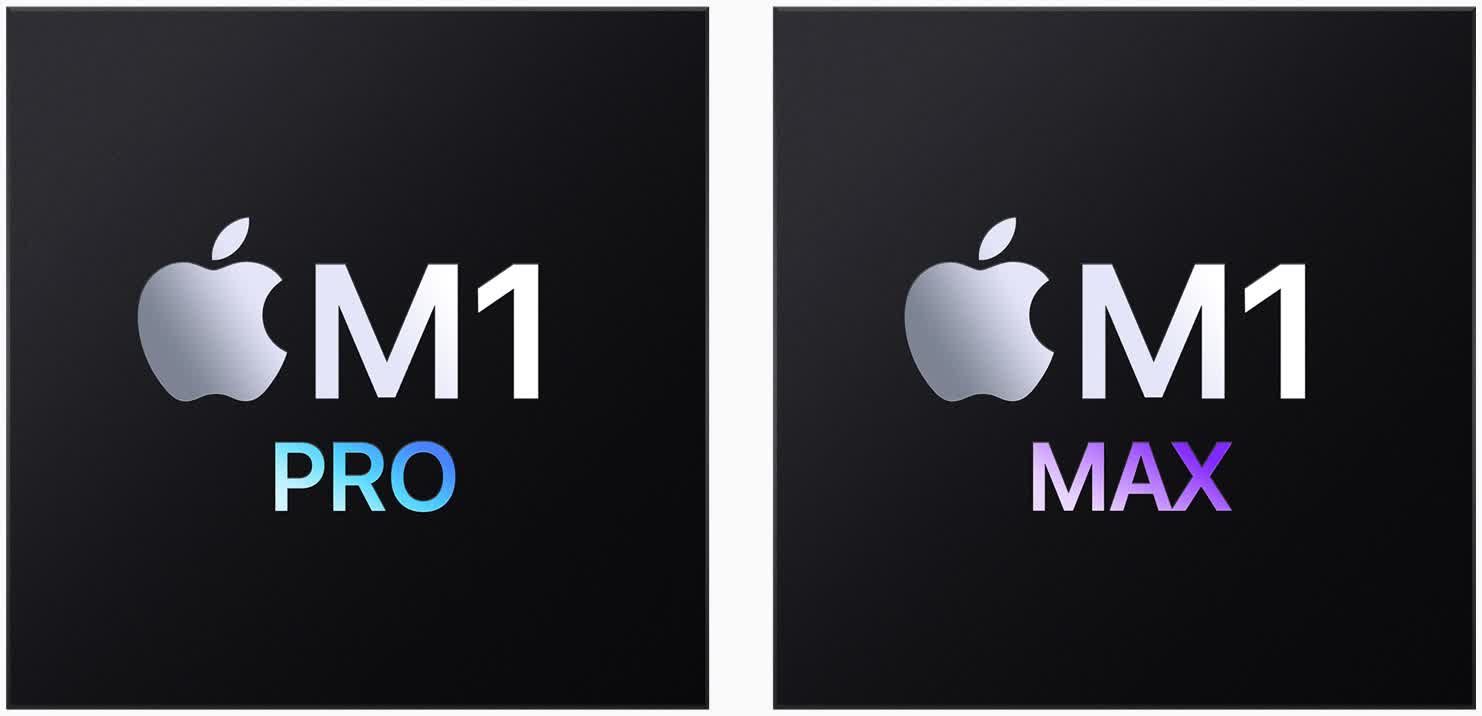
The new M1 Pro is built using 5-nanometer process technology and features 33.7 billion transistors, or more than twice the number that shipped in the original M1. The 10-core CPU consists of eight high-performance cores and two high-efficiency cores.
According to Apple, the M1 Pro / M1 Max consume 70 percent less power compared to Intel’s Core i7-11800H octa-core CPU and achieves 1.7x more performance.
Apple’s M1 Pro packs a 16-core GPU and can be configured with up to 32GB of unified memory with up to 200GB/s of memory bandwidth.
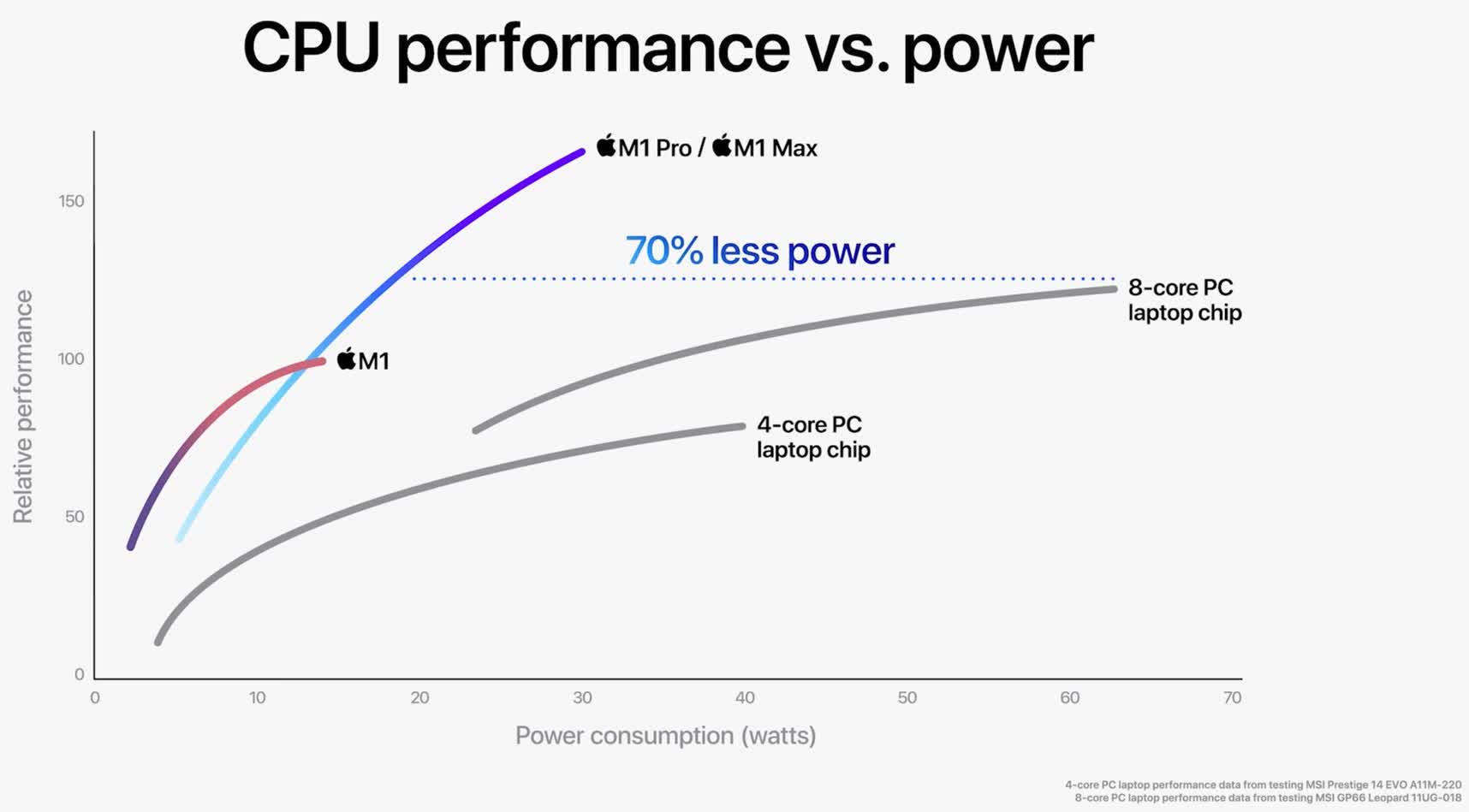
The M1 Max, meanwhile, utilizes the same 10-core CPU as the M1 Pro, but gets a beefier 32-core GPU that’s four times faster than the original M1. In total, this chip utilizes 57 billion transistors, making it the biggest chip Apple has ever made.
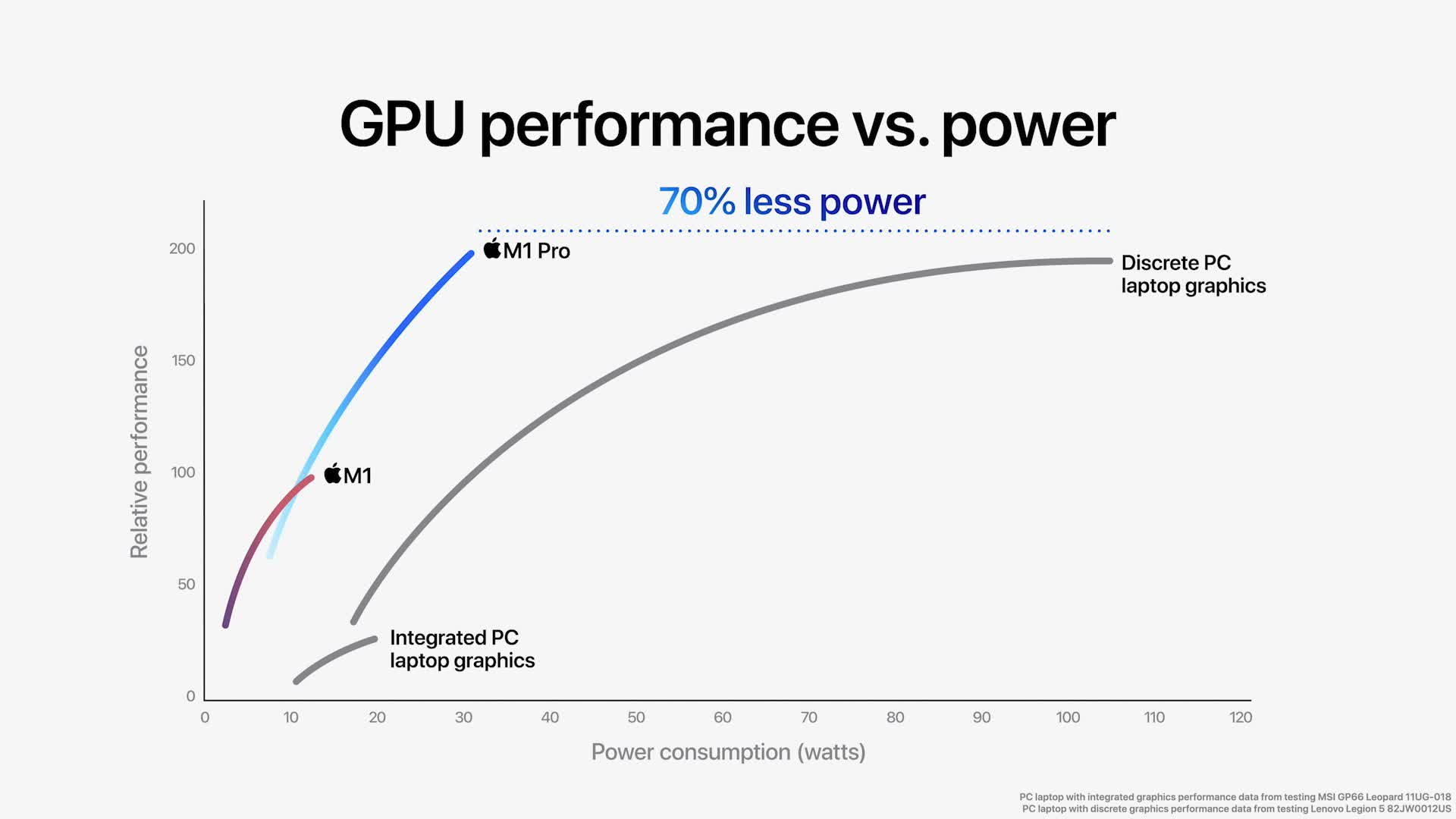
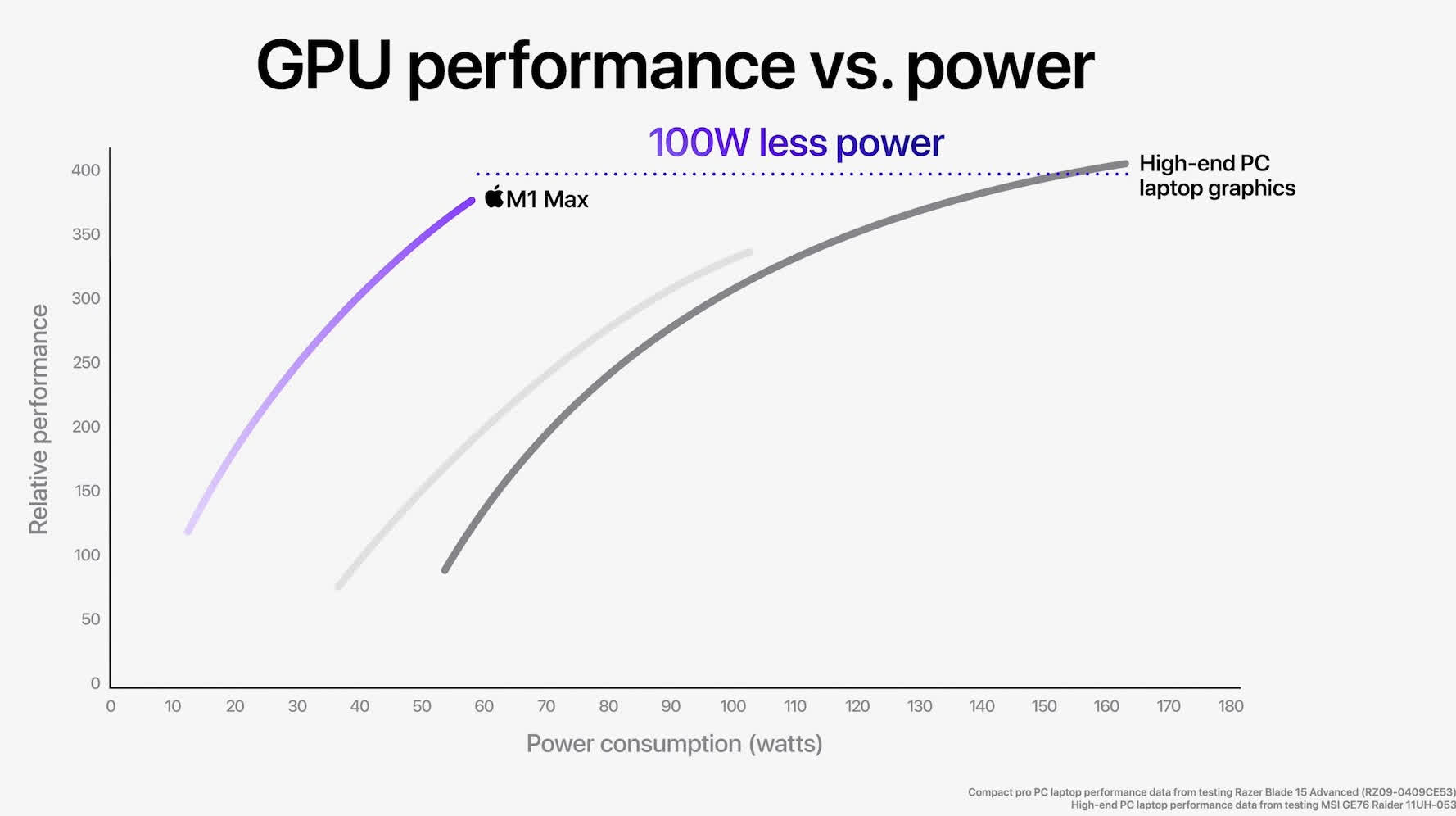
The company claims this chip is nearly comparable to the highest-end GPU in the largest PC laptops, but consumes up to 100 watts less power, translating to less heat / noise and better battery life. What’s more, the M1 Max doubles the memory interface – up to 400GB/s – and can be configured with up to 64GB of unified memory.
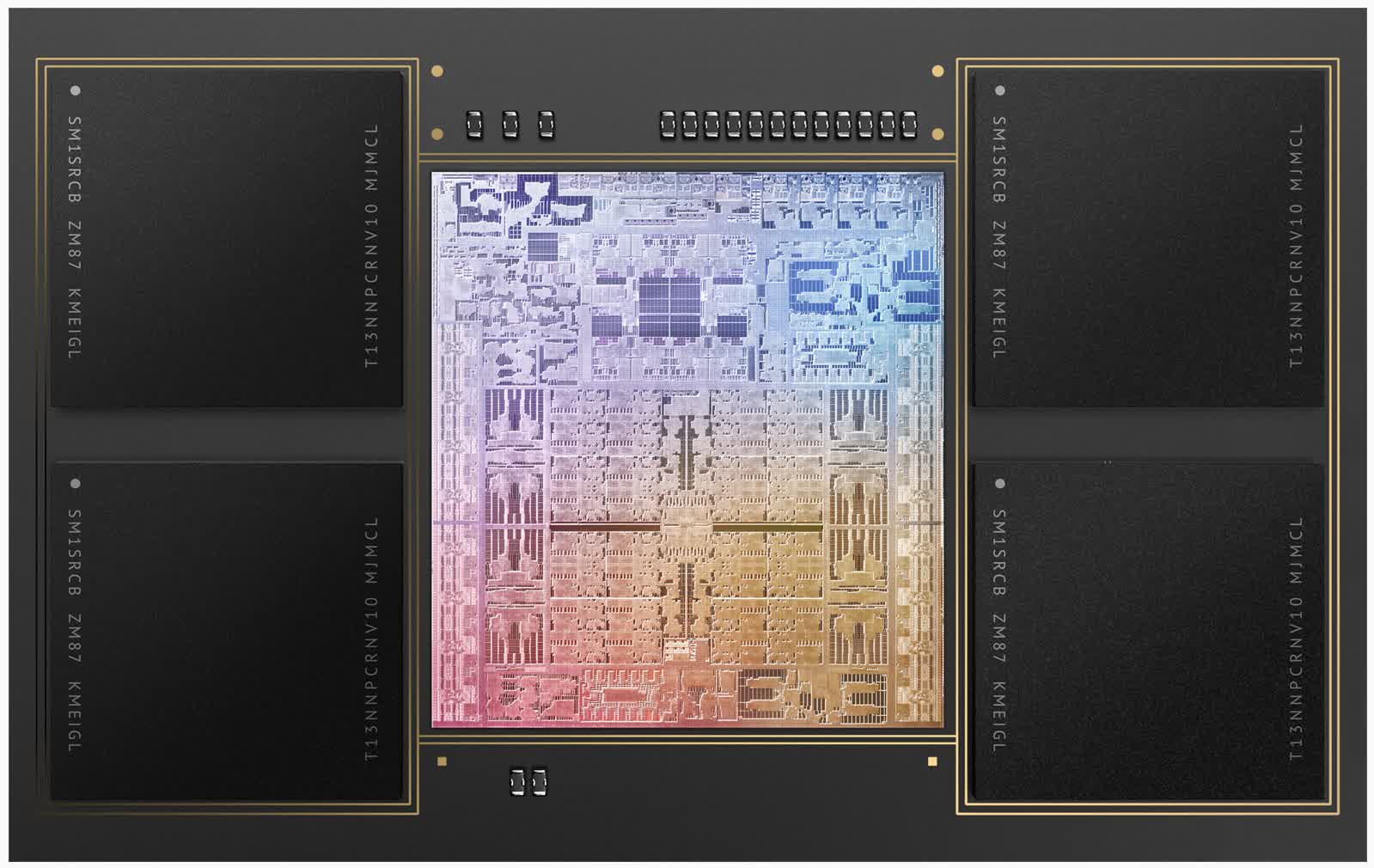
According to Apple, the M1 Pro and M1 Max deliver the same level of performance whether the MacBook Pro is plugged in or using battery power. Both chips also feature a 16-core Neural Engine for on-device machine learning and improved camera performance.
Apple’s new MacBook Pro models with M1 Pro and M1 Max are available to order from today. The 14-inch MacBook Pro starts at $1,999, while the larger 16-inch model will set you back a minimum of $2,499. Education pricing brings the entry barriers down to $1,849 and $2,299 for the 14-inch and 16-inch models, respectively.
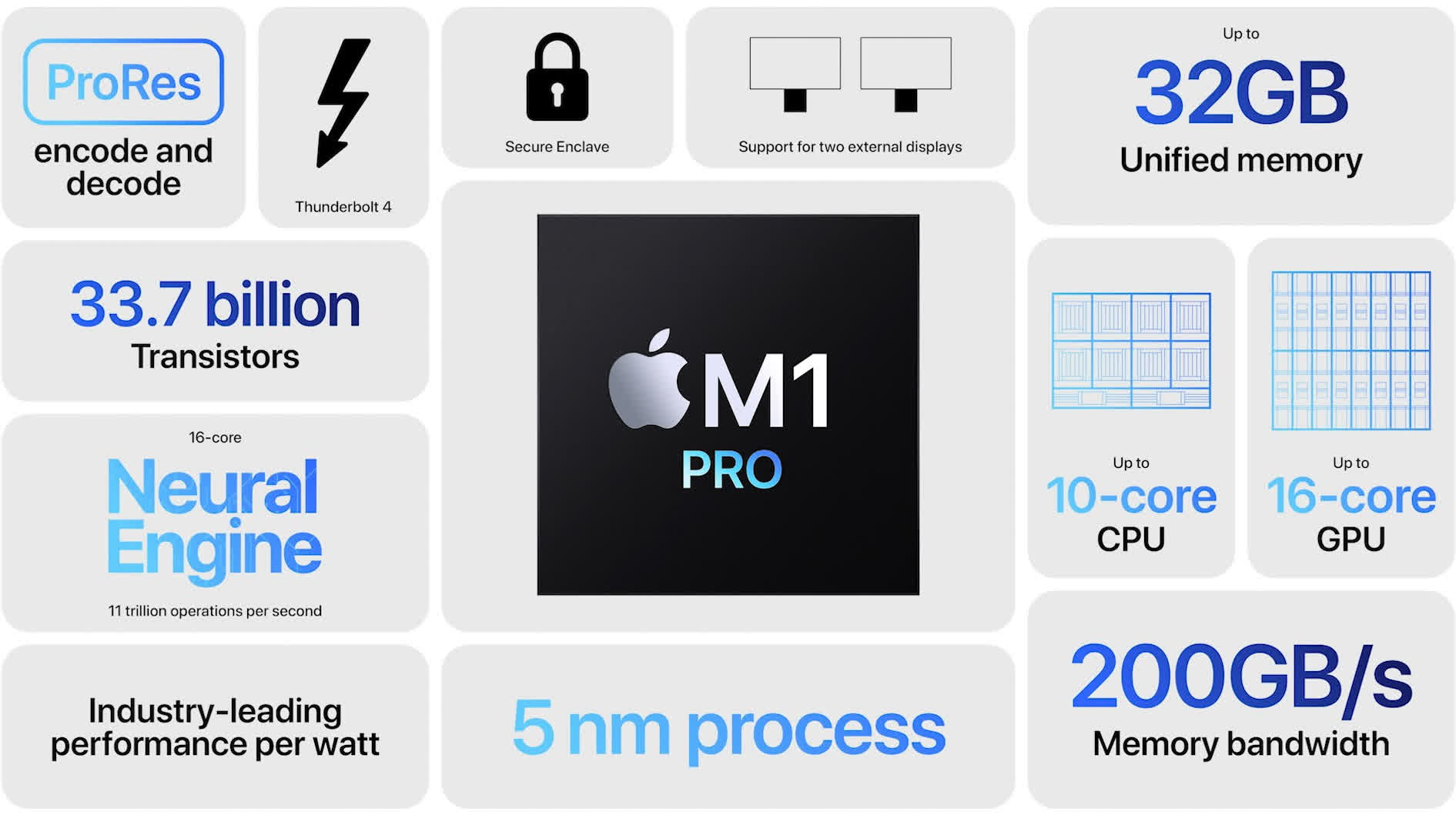
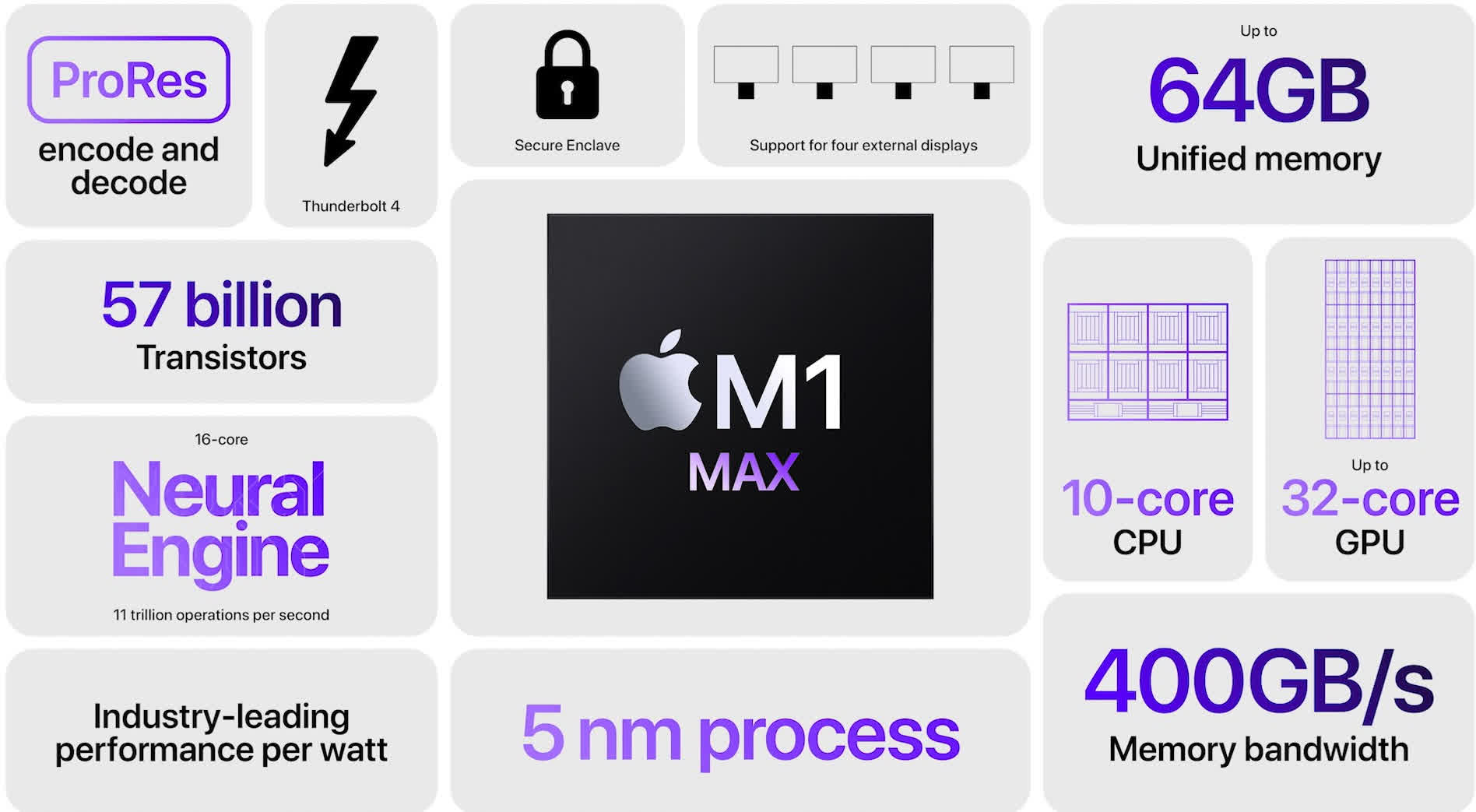
https://www.techspot.com/news/91809-apple-new-m1-pro-m1-max-most-powerful.html